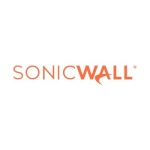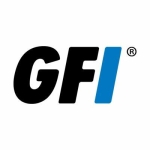We use Fortinet FortiGate-VM as an edge firewall for Internet traffic control and as the main firewall for cloud environments. Whether they're on AWS, Alibaba Cloud, or another platform, FortiGate-VM serves as the primary firewall.
One notable feature is the SD-WAN, which is a strong component of the FortiGate-VM. The fabric feature is also good, but not all customers use FortiGate's networking components, such as the switches. We enable various protection features on FortiGate, such as IPS and web application security. Most customers utilize these protection features to enhance their security.
Integrating multi-factor authentication with FortiGate-VM can be challenging. While multi-factor authentication is important, not all customers have it enabled. Integration with third-party solutions like ManageEngine or Duo can be complex and sometimes problematic during testing. However, high availability works smoothly with FortiGate-VM. We use high availability, and SD-WAN features effectively; overall, the performance is good.
I have been using Fortinet FortiGate-VM as a reseller for eight years.
The stability is good.
I rate the solution’s stability a nine out of ten.
We implemented it for more than one thousand users.
I rate the solution’s scalability a ten out of ten.
Support from the engineering team has some weaknesses. Sometimes, they focus on closing tickets quickly or asking for logs without thoroughly addressing the issue. However, the support team includes knowledgeable and responsive individuals, especially those from non-Arabic backgrounds.
Setting up FortiGate-VM is straightforward, but there is a step that can be a bit tricky. After installing the VM, you need to log into the CLI for the first time to set a static IP address if you have multiple interfaces. By default, interfaces will receive IP addresses via DHCP from the cloud service provider. You must disable DHCP on the additional interfaces and set static IPs to ensure proper access and configuration. You may have trouble accessing the firewall if you don't do this.
Issues with certificates and licenses often arise from the distributor, not Fortinet.
The setup process is generally easy. FortiGate is becoming popular in Saudi Arabia due to its user-friendly interface and ease of configuration compared to other vendors like Palo Alto. High availability setup is also simple and not overly complicated.
When comparing Fortinet to other vendors in Saudi Arabia, like Palo Alto, Fortinet stands out positively. In comparison to Sophos, many customers are currently switching to Fortinet. Fortinet's pricing is competitive, making it an attractive option.
To block HTTPS management traffic from the WAN, you must carefully manage the HTTPS settings. If HTTPS is not enabled on the WAN interface, you won't be able to block management traffic effectively. Some customers require HTTPS because of NAT services and use public IPs. Disabling HTTPS can disrupt management access. Better controls for managing the interface from the WAN side would be helpful.
Fortinet FortiGate is easier to configure and manage compared to Palo Alto. Setting up policies, routing, and VPN tunnels on FortiGate is more straightforward and faster. Palo Alto can be complex, requiring multiple steps to create a policy and manage interfaces.
FortiGate also excels in troubleshooting and logging. The logs are easier to read and provide better classification, making it simpler to troubleshoot issues. In contrast, Sophos is less effective for larger-scale operations and doesn’t match Fortinet’s capabilities.
In cloud environments, we recommend FortiGate-VM because it integrates well with cloud service providers. On-premises, many customers prefer physical FortiGate hardware, particularly with VMware setups. However, FortiGate-VM is more commonly used for service providers like SCC, Alibaba, and AWS.
Overall, I rate the solution a ten out of ten.


















